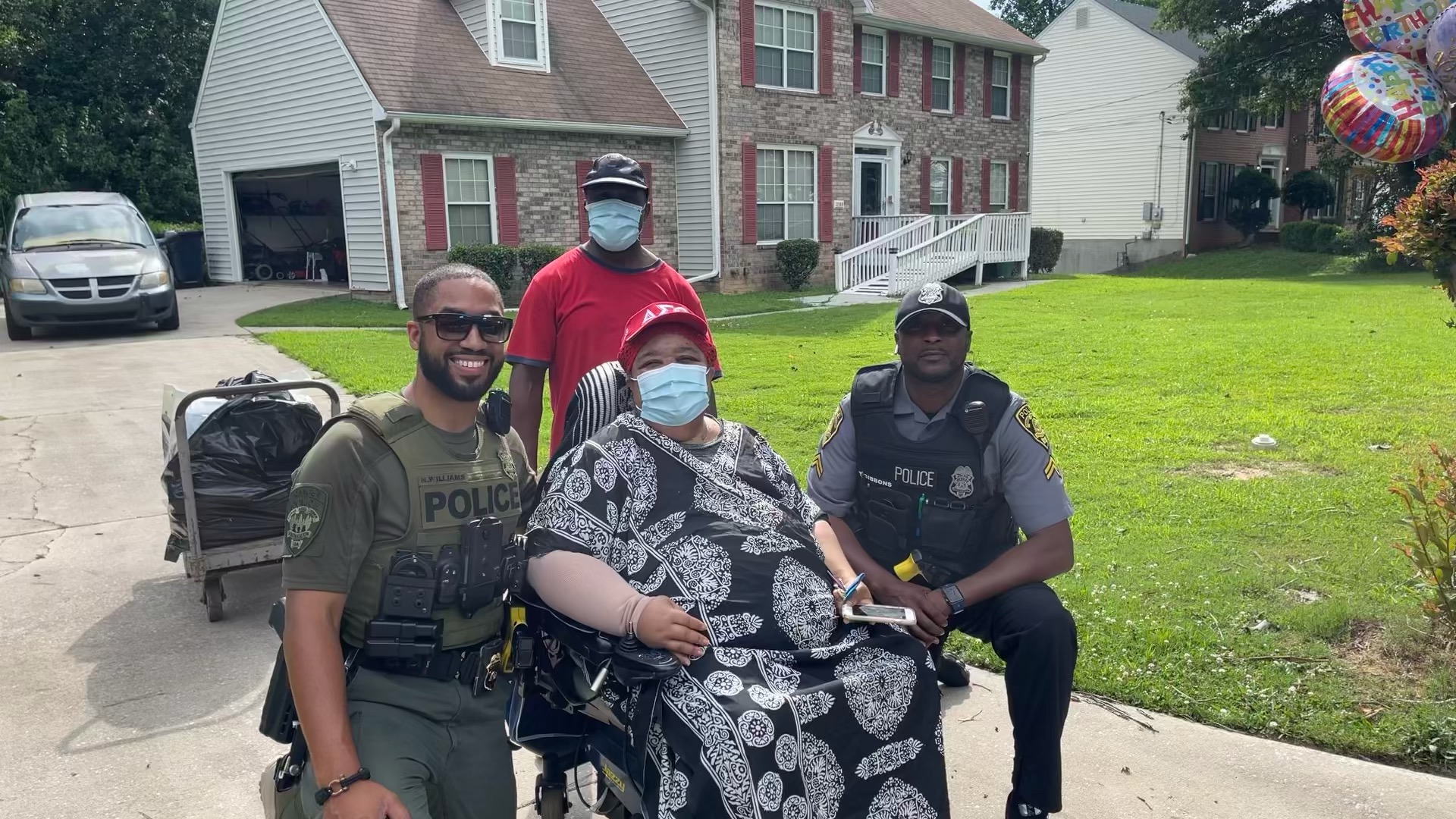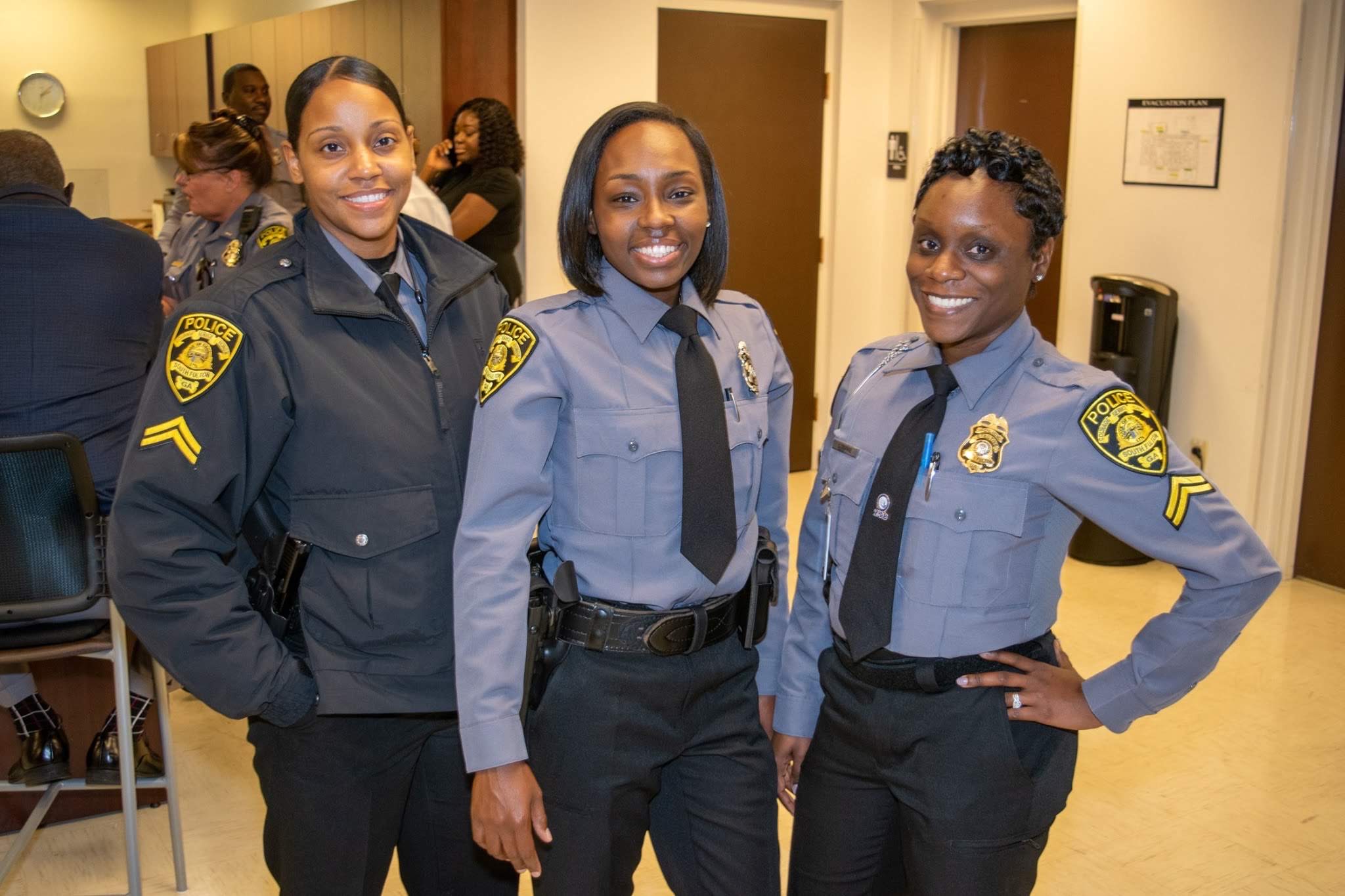Contact Us
To provide feedback on the Community Policing Dispatch, e-mail the editorial board at CPDispatch@usdoj.gov.
To obtain details on COPS Office programs, publications, and resources, contact the COPS Office Response Center at 800-421-6770 or AskCopsRC@usdoj.gov

U.S. Department of Justice
Office of Community Oriented Policing Services
Washington, DC 20530
 Civilians have long had a role in law enforcement, mostly in dispatch or clerical positions. Today, they are proving their value in a growing number of other jobs: planning, public information, property management, and administrative positions, to name a few.
Civilians have long had a role in law enforcement, mostly in dispatch or clerical positions. Today, they are proving their value in a growing number of other jobs: planning, public information, property management, and administrative positions, to name a few.
They are also taking on some traditional police roles, such as nonhazardous patrol duties, crime scene investigations (CSI), or other forensic jobs, allowing departments to free sworn officers for other work or to fill positions for which it is proving difficult to recruit officers.
The growing focus on community policing and use of technology has led to the hiring of civilians in new law enforcement roles as well—victim advocates, mental health consultants, and data analysts, for instance.
Civilians Fill a Growing Number of Roles
According to Chris Snyder, Public Information Officer for the Elkhart (Indiana) Police Department, “In the past, we filled all traditional sworn positions with police officers. And in some jurisdictions, even the dispatchers are still officers. But that was old-school thinking. As times change, we need to look outside the box and figure out how to do more with our sworn trained officers and fill other roles with civilians. Crime analysts, for instance, are positions we can train a civilian for. Evidence Tech is another area where they provide value. We can teach somebody to extract info from our records systems, for instance. If you’re already using civilians in front desk positions or for some field work, it’s a short step to integrating them into your CSI or other programs,” he adds.
Freeing Officers for More Police Work
According to Kurt Frisz, Chief of the St. Charles County (Missouri) Police Department (SCCPD), his department has six civilians in their CSI unit.
“Hiring civilians really works for us because it frees up officers for other duties,” says Chief Frisz. “Though we do sometimes have an officer for security purposes at the scene, and the investigators are supervised by a sergeant.”
Of the SCCPD’s 181 positions, 38 are filled by nonsworn personnel, and they are hiring three more for their records department, too. Says Chief Frisz, “In addition to records, they do CCW permitting, register sex offenders, and other jobs, so it is more than just filing police reports.”
“Some of our civilians are retired cops, too—our firearms examiner, for instance. And our cybercrime unit has a civilian investigator who is a former detective.”
Public Information Officers, who handle media, organize events, and provide information to the public, are often civilians, as are Asset Protection Managers and Property/Evidence Managers.A Civilian Heads One Department
 And in New Jersey, the Jersey City Police Department (JCPD) is headed by a civilian, Police Director Tawana Moody, who took over all police department operations after the department’s chief retired in 2021.
And in New Jersey, the Jersey City Police Department (JCPD) is headed by a civilian, Police Director Tawana Moody, who took over all police department operations after the department’s chief retired in 2021.
Though not a sworn officer, Director Moody has worked in the department for more than 16 years, starting as a clerk and working her way up through management positions. She now supervises approximately 700 civilian employees throughout the Jersey City Public Safety Department while also overseeing all the administrative needs for the 950 sworn officers of the JCPD.
According to Mayor Steve Fulop, appointing a civilian to oversee the department will strengthen police/community relations, enhance accountability, and ultimately lead to better results for residents and officers.
Today’s managers recognize that civilian employees have skills that complement those of law enforcement officers and that employing them allows police officers to focus on the things that require sworn officers’ skills.
Says Officer Snyder, “We’re going to see more of this in the future as more law enforcement positions are civilianized and jobs that had been filled with officers open up.
“It will put more cops on street and reduce call volume. The community will be safer if more patrol officers are out there. It’s a great idea and time to move forward.”
Recruiting Tips
Law enforcement agencies across the nation have come up with a variety of ways to recruit, hire and train them, including some of these strategies.
Retired Cops and Other Professionals
Says Chief Frisz, “I like to hire retirees because of the maturity factor. And a lot of retired officers want to continue working in law enforcement. Networking is the best way to recruit them, especially those with a specialty, who have a network and know each other.”
“It’s a small world,” he continues, “and if you know your same position is available as a civilian, an officer will retire and draw his or her pension but continue to work in a law enforcement function, doing investigations, cyber or crime lab work, for instance.”
Adds Officer Snyder, “Officers will say I’m eligible for retirement, know the records management system and want to stay involved.” His department also has civilian evidence techs who help process crimes scenes or evidence. “
Consider other retirees; former teachers, social workers, or other professionals who still want to work are a good source. A retired mechanic or engineer could help manage or repair the fleet and equipment, for instance.
Some retirees may be especially interested in part-time or seasonal positions, such as police work during tourist season or traffic control during the school year. Young people are an especially good source for these positions, too. And they can be reached through your youth programs.
A Recruitment Team is Critical
 Your recruitment team can work on an as needed or part time basis and should include civilian as well as sworn personnel. And get everybody into the act. Ask all your employees to spread the word with friends and family.
Your recruitment team can work on an as needed or part time basis and should include civilian as well as sworn personnel. And get everybody into the act. Ask all your employees to spread the word with friends and family.
Says Chief Frisz, “I tell our people, ‘you’re our best recruiter, so please talk to people.’ I suggest they come to our department and do a ride along or spend half a day with us in the crime lab, or shadow us for a day or something like that.”
Local marketing and social media consultants can be hired for advertising campaigns or people with these skills can be borrowed from the municipal government. Advertise on social media, sites such as Jobs Indeed, and law enforcement sites and the department’s own website and Facebook page.
Citizens’ Police Academies, Schools, and Universities
Colleges across the country are offering programs in criminal justice, and online courses are available to all who are interested.
But recruiters should make campus and classroom visits to all schools in their area, regardless of whether they offer such degrees, and emphasize the relevancy of various majors to police work. Attending college job fairs and advertising in their newspapers and job boards is also a good tactic.
Chief Frisz recommends that when you do presentations to recruit officers, present your civilian side as well. “Say ‘here’s what else our department has to offer.’ Many forget to do that.”
“A good recruiting ground is citizen police academies, too. You can introduce every part of your department,” says Officer Snyder. “People who attend these are already interested in law enforcement,” he adds.
Stress Your Culture and Service to the Community
Talk about the things that make your agency a great place to work while speaking about service to the community and the satisfaction that comes with that. Talk about your values, your community support, and the outreach efforts they can participate in.
 Another attraction is the diversity of the workforce. Candidates are attracted to diverse environments where they will feel welcome, as will women retirees. Including photographs of people of different genders, races, ages, and ethnicities is very helpful.
Another attraction is the diversity of the workforce. Candidates are attracted to diverse environments where they will feel welcome, as will women retirees. Including photographs of people of different genders, races, ages, and ethnicities is very helpful.
Says Sgt. Nicholas Williams of the South Fulton (Georgia) Police Department, “People want to join organizations that have people like them. If you want to recruit certain kinds of people, show them in your advertising. We have pictures of our female officers on billboards.”
Faye C. Elkins
Sr. Technical Writer
COPS Office
Subscribe to Email Updates
To sign up for monthly updates or to access your subscriber preferences, please enter your email address in the Subscribe box.






